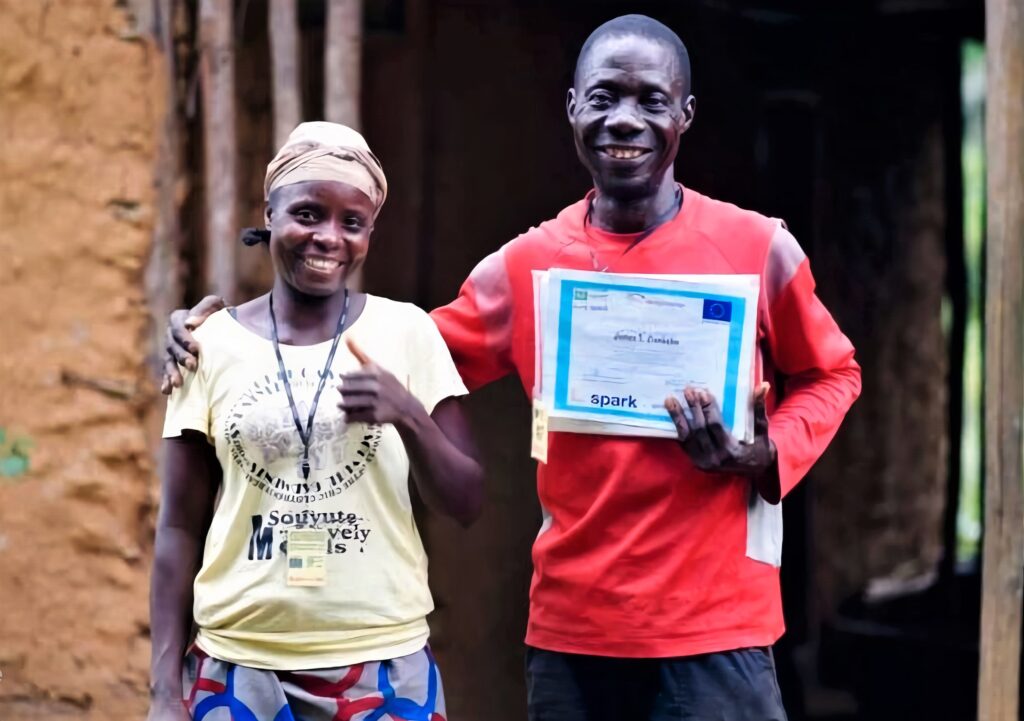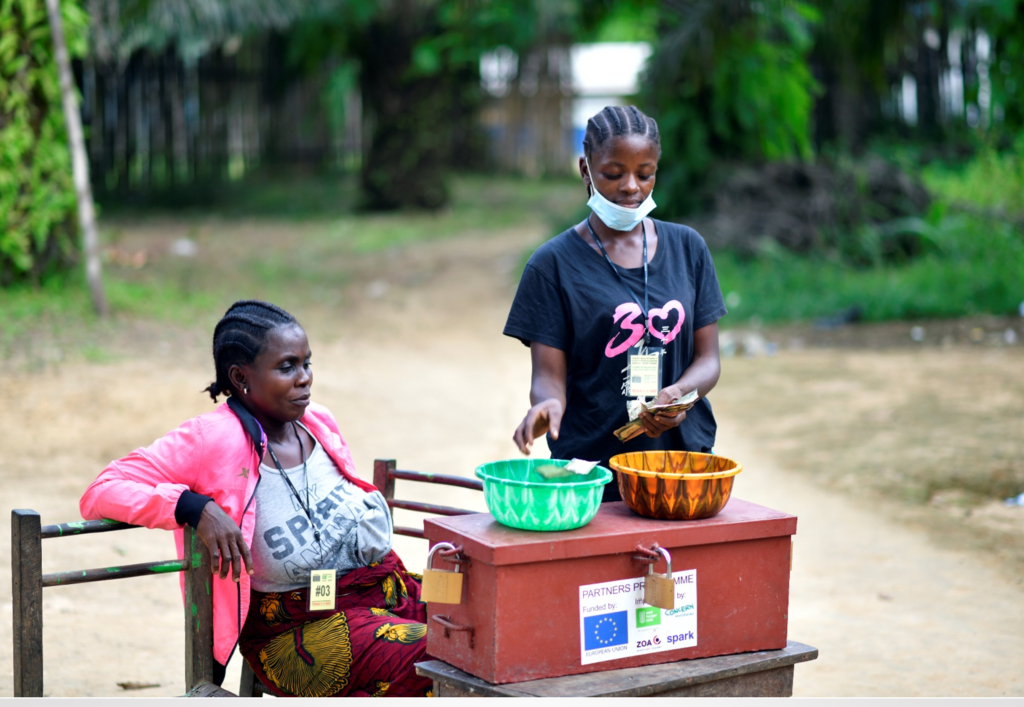Very few families in rural Liberia can take out loans. This prevents them from investing in their agriculture to make it more profitable and escape poverty. Welthungerhilfe is heading a project along with national and international organizations that promote the establishment of savings and credit groups. At the same time, the organization is running training courses to teach more effective methods for cultivating, storing and processing agricultural products. This increases the families’ income, improves their nutrition and allows them to develop as small business owners.

Savings and credit group offers new opportunities
Juah Nyanty left school when she became pregnant and had her first child. She had wanted to become a successful businesswoman. Instead, she worked with her husband on their farm. It was difficult for them to grow enough for the family, meaning harvest was used up far too quickly. When the Welthungerhilfe project started in her hometown of Topo Town, and a savings and credit group was founded, Juah knew that this was her chance. She took part in the project’s training on basic entrepreneurial skills and used a loan from the group to open a dried fish shop.
“The savings group was tremendously important for many women in our village. I was able to take the step to start my own business. Now I have enough to eat every day for my three children” (Juah Nyanty, Participant of the Savings and credit group in Topo Town, Liberia).
Today, the 28-year-old sources her goods from fishermen on the coast and sells them at the central market in her region. Thanks to Juah’s organizational skills and hard work, the business is doing well. She paid back her first loan a long time ago, took out two more and expanded her business. She has also paid off these loans. Proud and enthusiastic, Juah says: “The savings group was tremendously important for many women in our village. I was able to take the step to start my own business. Now I have enough to eat every day for my three children, and I can pay the school fees for the two older boys and invest part of the profits from my business in our cassava and rice cultivation.”
The savings and credit group has given the women in the region more self-confidence through their new financial independence. “I am very grateful to the project because it has shown us that we are not poor. Welthungerhilfe has helped us to stand on our own feet,” says Juah. “I hope the project will reach other women and encourage them to start their own savings groups. My whole life has changed now; you can see it in my face,” she says, laughing. “I can help make sure my family has a good life. Our eating habits have also changed; we no longer suffer any shortages. And something else has changed. It used to be difficult to express our opinions to our husbands or other people. Because we were shy and didn’t know our rights. Now we are equal.”
Saving together
The project also helped turn around the lives of James and Martha Ziankhan. “Before, we didn’t know how to increase our small income from our farming. We wanted to buy tools and seeds, but we couldn’t get a loan anywhere,” says James Ziankhan. After the agricultural savings and credit association was formed in the village, “We learned to save small amounts and manage our money together as a group,” says James.
Thirty farmers* have since come together every Sunday to put their savings into a pot. All members can take out a loan, and the repayments keep filling the pot. James and his wife have used the loan to buy, among other things, an oven and two large pans to roast grated manioc. This produces garri, a powder that can be stored in bags for a very long time. Mixed with water, it makes cornmeal porridge, one of the staple foods in Liberia. “More and more people are buying our garri because we can now roast it better. So, we make more profit. My wife can finally buy new shoes and clothes for the children,” says James with a broad smile.

Success despite challenges
What James and Martha Ziankhan experienced is typical of the problems faced by many smallholder farmers in Liberia. Despite fertile soils, they often only achieve low yields because they lack access to means of production and effective farming methods. In 220 communities in seven Liberian counties, the project, therefore, aims to support around 6,600 families reliant on agriculture, for example, by increasing the yields of manioc, plantains, pineapple, moringa, peanuts or cowpeas and improving their storage and processing capabilities. As a result, less food spoils, it has a longer shelf life and generates higher profits. The farming families can invest part of this through village savings and credit associations. This makes taking out loans to start small businesses or to invest in their own agriculture possible. The examples of Juah, James and Martha show how successful this concept can be.
Joseph Ashong is leading the project in Liberia for Welthungerhilfe, part of the Alliance2015. It is being carried out jointly with the international organization ZOA and Concern Worldwide, also partner thanks to the Alliance2015 and several local partners, with financial support from the European Union.
Author: Welthungerhilfe


